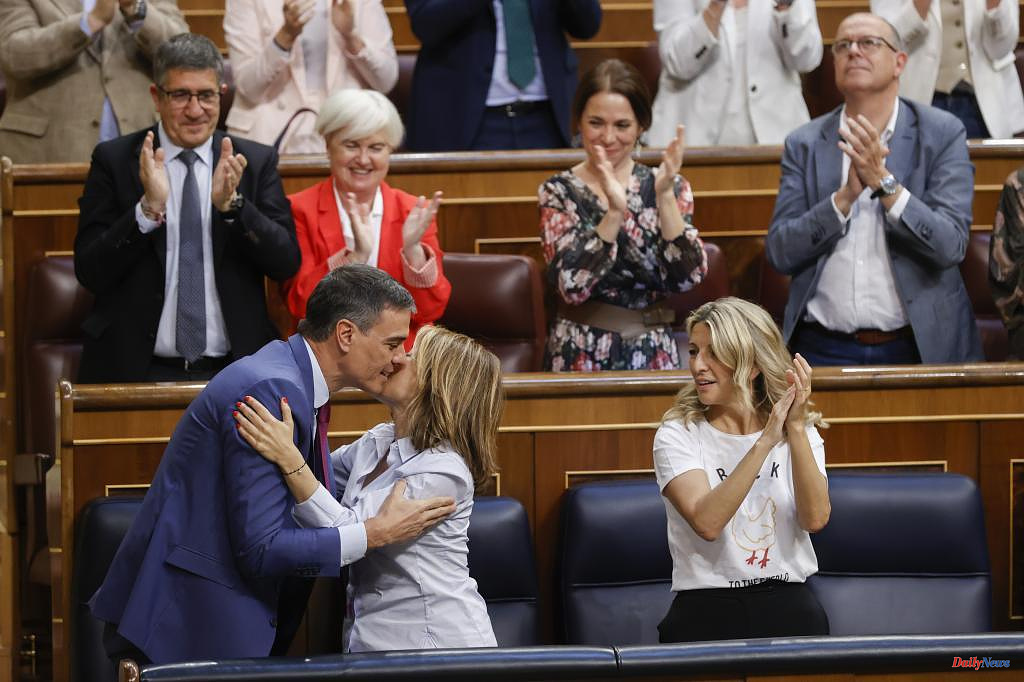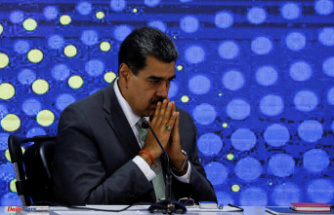Congress gave the go-ahead yesterday, after almost three years of negotiations and setbacks, to the Housing Law. The result of the vote was 176 votes in favor, 167 against and one abstention. PSOE, Unidas Podemos, EH Bildu, ERC and Más País have thus managed to approve the main electoral flag that they will fly with an eye on 28-M. All of them, with the Prime Minister at the helm, have described the new regulation as a "historic milestone" that lays the first stone of what Sánchez considers the "fifth pillar of the welfare state" on an equal footing with education and public healthcare.
However, once the elections are over, the law faces an uncertain future due to the vague points it contains, due to the foreseeable unconstitutionality appeals that are already looming and because the PP will review it from top to bottom if, in December, it manages to take over the government.
Voted against the law were PP, Vox, Citizens, PNV, JxCAT, PDeCAT and most representatives of minority and regional formations.
The main arguments used to reject the rule were three: market intervention, far from facilitating access to housing for young people and vulnerable families, will cause a restriction in the rental offer and, in the medium term, an increase in prices; the norm makes it difficult to evict squatted homes and the evictions of tenants who stop paying - this point is a key issue for PP, Ciudadanos and Vox who see the norm as a "bargain" for squatters - and, thirdly, and in a very prominent way, because it invades competences that are exclusive to the autonomies.
This last argument is shared by the Catalan independence groups, including the CUP -with the exception of ERC-, as well as the PNV in a head-on clash with EH Bildu, its main political adversary in Euskadi.
The rejection of the Basque nationalists is not a minor issue because, as their spokesman in Congress, Aitor Esteban, slipped yesterday, while waiting to have the final text of the law in his hands, there are many possibilities that the Basque Executive will present against it an appeal of unconstitutionality.
This is an option that is also being considered in the ranks of the PP, some of whose autonomous communities have already warned that they will give priority to their powers in all those aspects in which they consider that the State is interfering. The Community of Madrid has already taken the lead in resounding rejection.
To support this argument, they use article 148.1.3 of the Constitution, which establishes that regional planning, urban planning and housing are the responsibility of the autonomous communities, emphasizing, furthermore, that this provision cannot be considered diminished by article 149.1.1 according to which the State has exclusive competence when it comes to regulating the basic conditions that guarantee the equality of all Spaniards in the exercise of rights and in the fulfillment of constitutional duties.
If that were the case, the nationalists warn, the Government would have a free hand to occupy when it deems appropriate the space that corresponds to the Executives and the autonomous Parliaments.
It is for this reason that groups such as the PDeCAT or JxCAT affirm that ERC, by agreeing with the Government on the Housing Law, opens the door for the State to "enter fully into the Catalan household". The CUP expresses it more forcefully when it affirms that the norm is "the Trojan horse of the PSOE" to control housing policy in Catalonia.
To all this they add, like the opposition forces -PP, Ciudadanos and Vox- their disbelief regarding the announcements that Sánchez has made in the last two weeks promising tens of thousands of social housing, most of which, they say , in the best of cases it will take years to come true.
Despite the fragile future of the law, the president, in a statement without questions, welcomed the approval of what he calls "one of the milestones of democracy." And along the same lines, a socialist minister and another residence rose to the stage of Congress to share the role of having carried out the star argument of the campaign: Raquel Sánchez (Transportation) and Ione Belarra (Social Rights).
According to the criteria of The Trust Project












